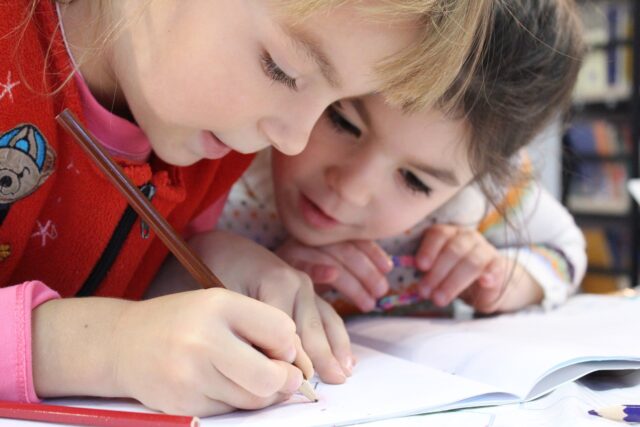
Education is an enduring voyage commencing in childhood. As parents, we wield a vital role in arming our children for a future distinguished by perpetual learning, growth, and adaptability.
In today’s swiftly evolving world, where school-acquired knowledge and skills can become obsolete, it is imperative that we furnish our children with the necessary tools and a lifelong learning mindset. This article will delve into practical strategies for readying your child for a lifetime of learning.
Foster a Growth Mindset
The foundation of lifelong learning is a growth mindset. Psychologist Carol Dweck introduced the concept of a “growth mindset,” which entails the belief that abilities and intelligence can be cultivated through dedication and hard work. Nurturing a growth mindset in your child can enable them to tackle challenges with enthusiasm and resilience.
To foster a growth mindset in your child, commend their effort rather than their inherent abilities. Instead of phrases like “You’re so smart,” opt for expressions like “I’m proud of how hard you worked on that.” This shift in language underscores the significance of effort and the learning process. Moreover, teach them that making mistakes is part of learning.
Additionally, don’t ignore the impact of daycare on your child’s development, offering great opportunities for them to explore and comprehend the world that surrounds them. Daycare facilities have proven-effective programs to help with mental and physical transformations.
Encourage Curiosity

Children are naturally curious, and nurturing this inherent wonder is vital for their development as lifelong learners. Motivate your child to inquire, delve into their interests, and find answers to their questions. Providing access to books, educational resources, and experiences that align with their passions can ignite their curiosity.
Engage in museum visits, nature walks, and hands-on experiments to pique their curiosity and ignite a passion for learning. Be active in these adventures, asking questions and exploring alongside your child, demonstrating that learning is a lifelong journey for everyone.
By providing them with opportunities to conduct experiments, you allow them to explore new things on their own, fostering a sense of autonomy and creativity. Many science kits include tools related to chemistry, physics, or biology.
Children can use magnifying glasses to inspect leaves, insects, or even household items. For older children, a microscope provides a fascinating tool for exploring the world of tiny organisms. They can investigate cells, bacteria, and even small insects under the microscope. These experiences not only ignite their interest in the world around them but also promote problem-solving skills, critical thinking, and a deeper understanding of various subjects.
Create a Learning-Enriched Environment
Your child’s learning environment at home plays a significant role in their ability to embrace lifelong learning. Ensure that your home is conducive to learning by designating spaces for reading, studying, and creative exploration. Stock the shelves with a variety of age-appropriate books and learning materials.
The best toys include building blocks that allow children to design and build structures, fostering their creativity and spatial skills. Stargazing with a telescope can introduce children to astronomy and the wonders of the night sky. Moreover, limit screen time and encourage a balanced approach to technology use, focusing on educational apps and content.
Additionally, engage your child in discussions about what they’re learning at school and show genuine interest in their academic pursuits. This not only reinforces the importance of learning but also demonstrates your support and involvement in their educational journey.
Teach Critical Thinking Skills

In a world abundant with information, advanced skills enable individuals to analyze information, facilitating informed decision-making and effective problem-solving. Encourage your child to participate in solving puzzles or engaging in strategy games. Furthermore, teach your child the importance of listening actively when others speak. Discuss what was said and how it was said.
Analyze advertisements, images, and videos with your child. Discuss how these media sources may try to influence people’s thoughts and opinions and how to critically evaluate them. Play logic and reasoning games like chess, Sudoku, or logic puzzles. These games promote problem-solving, strategic thinking, and the application of logic.
Children often learn by example. Explain how you arrive at your conclusions and why you make specific choices.
Set Realistic Goals
Encouraging your child to set achievable, realistic goals is crucial for their personal growth, whether in academics, music, or sports. It’s essential to convey that setbacks are natural and valuable. Resilience is key to persevering through life’s challenges. To foster resilience, demonstrate it through your own experiences, offer guidance, and emphasize problem-solving, coping strategies, and a growth mindset.
Celebrate small wins, encourage independence, and maintain open communication to create a supportive environment. Help your child develop realistic expectations and reframe setbacks as learning opportunities, empowering them to achieve their goals and build resilience for life’s challenges.
Cultivate Effective Study Habits

As your child progresses through their educational journey, effective study habits become increasingly important. Teach them how to manage their time, organize their work, and create a conducive study environment.
Additionally, instill a love for reading in your child to broaden their knowledge and enhance vocabulary, comprehension, and critical thinking. Make regular visits to the library, read together, and discuss the books you’ve both enjoyed, instilling a deep appreciation for literature and learning.
The Pomodoro Technique is a time management method developed by Francesco Cirillo. Emphasize the importance of eliminating distractions and creating a dedicated workspace. Encourage your child to maintain a record of their Pomodoro sessions to track their progress and stay motivated. Moreover, make it enjoyable by using fun timers or allowing them to choose a reward for their longer breaks.
Encourage Extracurricular Activities
These activities offer diverse exposure, fostering curiosity and encouraging critical thinking. Many involve problem-solving, teamwork, and decision-making, be it in chess, drama, or robotics. Balancing these commitments teaches time management and prioritization.
Conclusion
Preparing your child for lifelong learning is a multifaceted endeavor that begins early and continues throughout their educational journey. Foundational steps are fostering a growth mindset, encouraging curiosity, and creating a learning-enriched environment. Furthermore, instructing critical thinking skills, setting goals, establishing productive study routines, and endorsing extracurricular activities are fundamental to their educational growth.







